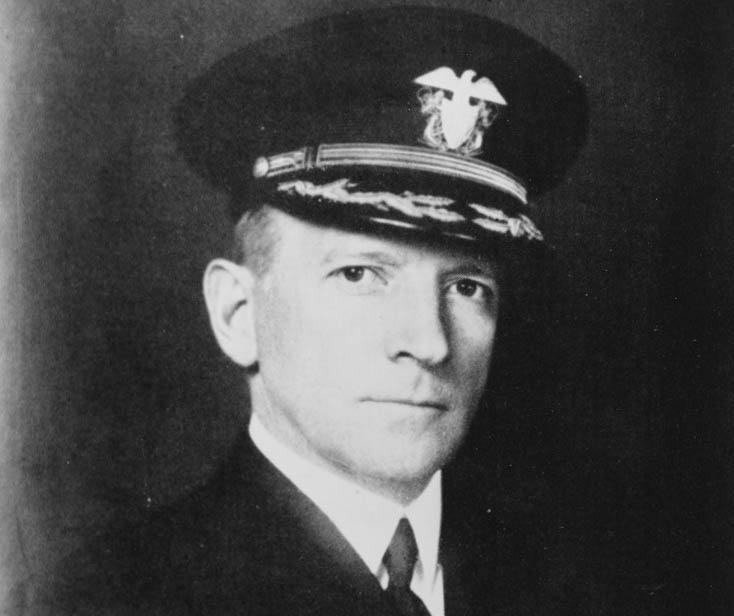March 27, 1942: A day after setting off eastward from Casco Bay, the U.S. Navy’s Task Force 39 plows through a heavy sea off Nova Scotia in the North Atlantic, heading for Scotland’s Orkney Islands to reinforce the Home Guard while the British navy participates in a World War II invasion of Madagascar, then under the control of Vichy France, which is collaborating with Germany.

The 13-ship American task force’s newly appointed commander is Rear Adm. John W. Wilcox Jr., whose flagship is the USS Washington.
At 10:31 a.m. the Washington reports seeing a man overboard. The USS Tuscaloosa spots a man in the water and moves aside to avoid running him down. The task force initiates a search-and-rescue operation. The Washington checks its roster and finds all of the crew members and all of Wilcox’s staff members accounted for. The officers eventually conclude that Wilcox himself is the man in the water.
The aircraft carrier USS Wasp launches four SB2U-2 Vindicator dive bombers to help look for the admiral. One of the planes crashes astern of the Wasp, killing both crew members.
Someone on the USS Livermore sees Wilcox’s body floating facedown about an hour and 20 minutes after he went overboard, but rough weather prevents its recovery. Some sailors recall having seen Wilcox walking alone on the Washington’s deck earlier that morning, but nobody can explain how he ended up in the water.
Wilcox, a Georgia native, had turned 60 five days earlier. He received the Navy Cross for his service in World War I and was the executive officer on a troop ship returning soldiers to the United States in 1919. Between the wars, he was on the U.S. Naval Academy’s teaching staff and, later, was acting president of the Naval War College in Newport, Rhode Island.
March 27, 1980: Frustrated with U.S.-Canada trade policies and low potato prices, Maine farmers dump rotting potatoes at nine border crossing points, preventing the transfer of goods between the two countries. The blockades and a standoff with police last two days.
The blockades are removed when federal officials fly from Washington and meet with the farmers to talk about solutions. The following November, some farmers say nothing was accomplished and the problem of New Brunswick farms exporting potatoes to the United States at unfairly low prices has gotten even worse.

Maine farmers protest U.S. import of Canadian potatoes in Madawaska, one of nine border crossing gates blocked by vegetables. Associated Press
Joseph Owen is a retired copy desk chief of the Morning Sentinel and Kennebec Journal and board member of the Kennebec Historical Society. He can be contacted at: jowen@mainetoday.com.
Send questions/comments to the editors.


